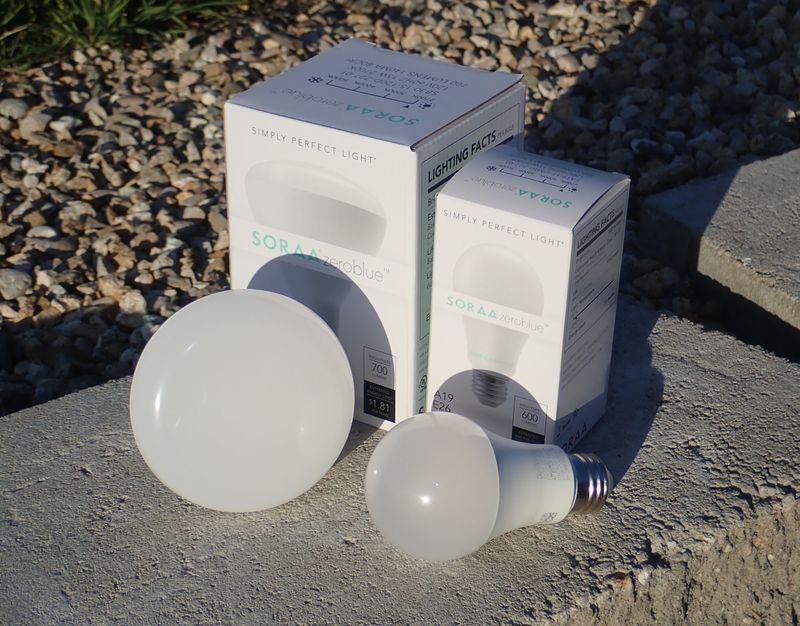In the United States today, we’ve got two primary political parties: The Democrats, and the Republicans. They fight like cats and dogs on TV, but deep below the surface, they’ve both got an awful lot in common, and act more like friends than enemies.
One of the biggest core assumptions they share is regarding growth. They both agree that Sustained Growth is the desired state of the economy, and while they disagree on which particular levers to pull to make sure Growth Returns, and maybe some aspects of the fine detailing on the lever handles, they don’t dare question the Almighty Sustained Growth core of their beliefs.
What if growth is over or nearly over? Calling THEM dirty names only accomplishes so much (none of it useful). It would be very useful to have a political party exploring the concept, and proposing solutions that, while perhaps not along the lines everyone would like to see, are much more useful and match what people are actually dealing with in their everyday lives.
I’m calling this political party the Backsideist Party. Because, well, I get to name the things I come up with.
Why Backsideist?
Easy. If I’m right, we’re on the backside of the story arc of western industrial civilization. We should do something productive about this instead of insisting at the top of our collective lungs that we’re still up the upswing and prosperity will return to every household if we just {whatever your preferred political party thinks the way to stimulate growth is}.
The reality in America is that the lower class is toast, the middle class is getting gutted, actual unemployment (not the gamed numbers announced on the news occasionally to great fanfare) is quite unpleasantly high, the state of infrastructure is quite sad (when was the last bridge collapse?), and if you don’t count financial games played on Wall Street, there’s not a huge amount of good stuff happening with regards to the GDP. The American Consumer is out of credit, and there’s not a huge amount of actual physical wealth being produced in the country right now compared to the ongoing decay.
We may as well state the facts of our current reality out in the open and do something useful, instead of pretending it’s not happening.
Interested? Read on! This is a high level glossing over the concepts I’d like to work with, and will absolutely be expanded in many future posts.
Primary, Secondary, Tertiary Economy
First off, t’s useful to think about the economy in three separate spheres. I like E. F. Schumacher’s breakdown of the economy, so I’m going to use it.
Primary goods are things produced by nature: Clean air, fresh water, trees, mineral deposits, oil, beef, etc.
Secondary goods are things produced by humans: Houses, chairs, cars, roads, bridges, etc. These goods require the use of primary goods to create.
Tertiary goods are financial products. They do not reflect any actual physical wealth, and are functionally unlimited. They’re very useful to lubricate the transactions of the secondary economy, but they can rapidly grow beyond that. They’re also mostly useless. You can’t eat a derivative.
Pay attention to what people are talking about when they talk about wealth. The primary economy is essential to life. The secondary economy makes life feasible on most of the planet, and is essential for having anything more than a basic subsistence existence. The tertiary doesn’t really count for either of the first two, and is not an adequate substitute.
Finite Planet, Exponential Growth?
We live on a finite planet. This should not be a particularly controversial statement. It means that there is only a limited amount of “stuff” on the planet. A limited amount of oil. A limited amount of metal ores to refine. A limited amount of primary wealth that we generate our secondary physical wealth out of. Some primary wealth renews year over year. Some doesn’t. And primary wealth renews on it’s schedule, not ours.
However, we also have created an economy that desires, demands, and requires exponential growth. The economy must grow, year over year, ideally by some desired percentage. This is literally the definition of an exponential curve, and we implicitly assume in almost everything that the growth will continue indefinitely.
White’s Law demonstrates, over time, the strong correlation between economic growth and energy growth - and this extends to non-renewable resource extraction.
However, a tiny bit of logical reasoning will make evident that one cannot continue exponential growth forever on a finite planet. You eventually run out of resources.
A something that cannot continue forever will eventually stop. And exponential growth on a finite planet cannot continue forever. So it won’t.
What about space? Asteroids? Other planets? They, too, are finite. If we use them, we may be able to kick the can for a long while down the road, but the same problems will eventually apply. And, right now, we don’t seem to be making much progress towards the use of space-based resources. Gravity wells are a bitch.
Peak Everything
Resource extraction is a well understood activity. We start by extracting the easiest and highest quality resources, then as those are exhausted, move to slightly harder to obtain resources that require more work to refine. We keep doing this until, at some point, all the economically recoverable resources have been extracted, and we’re sort of “out” of whatever the resource is. At some point, the resource extraction rate peaks, and the rate of extraction of a resource declines beyond this point.
By most metrics, peak oil happened about a decade ago in 2005. Yes, we’re frantically using heroic measures to extract oil and claim that this scraping of the barrel means the barrel is full, but the rate of new finds has been below the rate of extraction for some time now, and eventually, we’re simply not going to be able to continue producing oil at the same rates. At some point, even with plenty of oil “left on the planet”, it will take more energy to extract a barrel of oil than one can obtain from the oil. Long before that point, a large amount of the energy consumption of society will be spent on nothing but obtaining energy, and at some point (nobody is exactly sure where), this causes problems. A society that is spending 90% of it’s energy output on obtaining energy will not have the excess energy for the range of other activities people generally like to associate with civilization.
Our civilization relies on many other things that are extracted and used well beyond replenishment rates. Oil is only the most obvious. Phosphorus for crops and ground water (effectively, “fossil water”) are two other major resources we’re going through well beyond the replenishment rate, and this causes severe problems for agriculture in the future. There are plenty of other options you can point to as well. I’ll dive into these a bit more in future posts.
A Low Energy Future
If our civilization follows the normal arc of civilizations, our future over the next few centuries will involve a lot less energy - and a lot less economy. There are two ways forward to this low energy future: Willingly, while we still have the surplus energy to do something useful, or being dragged kicking and screaming against our wills. If we don’t choose the first, we will see the second - and the second option doesn’t turn out nearly as nicely as the first.
A low energy future will have some very significant impacts on what our civilization looks like. Many people think briefly about it, throw their hands up, and make some comment about how they’d rather just die quickly than face a sustained low energy future. Or, equally uselessly, claim that we’ll be extinct anyway due to {insert catastrophe here}, and it doesn’t matter.
But humanity has survived and thrived in the past on tiny fractions of our current energy use, and there’s no reason to think we can’t do the same going forward. We’re pretty damned adaptable. The low energy future isn’t likely to consist of a huge house in the suburbs, carefully maintained at 70 degrees year round, brightly lit on demand, but that’s really not the end of the world.
We currently spend mind boggling amounts of energy (and some high grade energy at that!) heating and cooling houses. We spend huge amounts of energy transporting goods across the planet. And there are plenty of other uses of energy that may not be the most reasonable thing to do in a low energy future.
A Useful Response
So: Given all this, what would a useful set of responses actually look like? I have a few ideas about things that might prove useful going forward.
Extreme Localization
A low energy, post-growth future is, by raw necessity, going to be radically local. Shipping goods halfway across the planet will become less and less feasible, either economically or in raw energy terms (likely both), and so it will happen less. I expect naval commerce will remain, but it will probably not consist of bunker oil powered container ships crossing the oceans - it’s eventually likely to end up with sailing ships again, because they don’t need to carry their own fuel. If you don’t have to meet a timetable, they make a lot more sense, and they can be built entirely out of renewable, earth provided materials.
The end of industrial agriculture and the rise of locally-produced food
Shipping food around the world is likely to wind down as well. Food will need to be grown locally, and preserved with lower energy methods - canning and root cellars being potentially useful, low energy approaches. Working with nature instead of against it will radically reduce the energy needed to survive, and probably will involve better food in the process.
Industrial agriculture, as currently practiced, is probably not long for the world. Right now, we’ve got a system that starts with mostly sterile dirt (killed by many years of industrial agriculture), pumps oil based fertilizers into it, uses rock phosphorous to give the plants more of what they need, pumps fossil water out of the ground to spray wildly around, grows food, covers it in oil-provided insecticides, and then uses huge amounts of oil to harvest, process, and ship it.
Doing this in a low energy future isn’t likely to work well - or at all. Fortunately, there are groups of people who have kept low energy, soil focused agriculture alive. The Amish are a good starting point here, as are many of the organic farms. This system is significantly more labor intensive, but will continue to function just fine into the future. However, it relies on soil that is in good shape to start with, so will be difficult to use on our current farmland.
Working on the current soil conditions now such that they’ll be usable without huge oil inputs would be a good start. But that might cost something, so, sadly, it’s not likely to happen.
This means that as industrial agriculture falters, something else will have to take up the slack - at least assuming that people still want to eat, which is a pretty good bet.
Fortunately, there are plenty of ways to grow food locally. Gardens are a good start, especially when combined with some chickens/ducks (your typical homestead). Aquaponics (combining aquaculture and hydroponics to grow fish and vegetables) is an incredibly resource and water efficient way to grow food. And local community gardens/farms/etc that can be worked by humans will have a significant role to play in food as well.
A useful first step would be to get rid of HOA laws that prohibit growing gardens in front of houses. Lawns are not useful. Gardens are useful. Requiring people to have lawns instead of actually growing food is utterly absurd. The same goes for HOAs banning solar panels or solar thermal collectors on the base of appearance, by the way.
Also, this does mean that people will be spending more of their time working on growing food. This is the reality of having less energy available. Intensively farmed areas do require more labor, but we’re likely to have a lot of unemployment. It’s, perhaps, more useful to have people working in large community gardens instead of doing nothing.
Use of local solar energy for heat
One of the biggest things we, as a society, waste high grade energy on is heat. We burn insane amounts of heating oil, natural gas, and whatever we are locally generating electricity out of - just to make heat. This is reasonably absurd, in that heat is the result of pretty much anything you do, so you may as well do something productive with the energy on the way to heat.
More importantly, we’ve got a great source of heat called the “sun” - it hangs out in the sky, you may have heard of it (and possibly cursed at it, if you’re in Seattle). Doing as much as possible with it for heat is absolutely essential to deal with a reduction in energy use. We should be designing and retrofitting homes to heat their water with sun, and as much as possible, heat their insides with sun. In areas that get a lot of cloud cover during the winter, this also means a lot of thermal mass in some form or another to carry the heat through days that don’t have sun.
This is a significant change in how we build homes, and so it will take time. However, there’s a lot that can be done to retrofit existing homes so that, at least some of the year, they can be heated with the sun. We should be actively doing this, as many places as possible. And, yes, this too will upset HOAs - you might have solar collectors on your roof and south facing walls! Too. Damned. Bad. Any improvement that makes use of solar energy for heat reduces our need to burn high grade energy for heat, and extends the time we have use of those resources.
“But I want X, so reality must give it to me!”
This, sadly, seems to be about the level of discussion happening about most of these issues. Just because we want an SUV (electric, please - you know, to save the planet) in every garage, an air conditioner in every room, and all the power we want, whenever we want, with zero environmental impact, doesn’t mean that this is compatible with reality. We’ve managed a decent job for a little while with this, in some countries, because we’ve been burning through insane amounts of fossil energy in a very short time. That doesn’t mean we can sustain it long term.
I’m sorry. Reality is under no obligation to give everyone their Solar Powered Self Driving Uber-dispatched Tesla. I’m sure some people, somewhere, will get something like that, at least for a while. But we should consider what to do for those who can’t have it, and we should consider what to do once they become less feasible for those who can initially use them.
Backsideism: A useful response to an uncomfortable problem
So, given all this, we should do something useful about it!
Which is why I propose the Backsideist party. Let’s work within the current political system to get people elected who may not support endless growth, but will work to do something useful in the future we’re likely to get, not the future we want.
Let’s bring the topic up in discussion and debates. Yes, it’s likely we’ll get shouted down as out of touch with the latest gamed government stats that show everything is rosy - but as more and more people lose their jobs, more and more people can’t afford to heat their homes, and the view from outside the beltway keeps looking worse, we can be in a position to offer people something useful - a plan forward.
But… but… We have Technology!
I’d love to be wrong. I’d love to see our civilization make a transition to clean energy, radically reduce our energy footprint, start cleaning up the damage we’ve done to the planet, and keep growing. I really would. It might be technically possible, but right now, it looks entirely politically infeasible.
And, if I’m wrong? Well, then, we use less energy to heat our homes, we eat high quality locally produced food, and maybe spend a little bit less time in front of computers and more time outside in nature, working the garden in our front yard that is no longer against HOA laws. We might even get to know our neighbors.
Comments
Interested? See things you’d change/tweak? Let me know!
Please keep comments useful and on topic. I really don’t want to hear “But XYZ will let us keep using energy at our current rates!” - unless you’ve got data that shows it’s actually going to happen. And, no, pointing at some current trends and shouting about “Renewables!” doesn’t do it.
Comments
Comments are handled on my Discourse forum - you'll need to create an account there to post comments.If you've found this post useful, insightful, or informative, why not support me on Ko-fi? And if you'd like to be notified of new posts (I post every two weeks), you can follow my blog via email! Of course, if you like RSS, I support that too.







